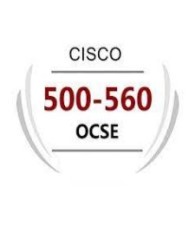How can Tribal communities protect essential operations against cybersecurity vulnerabilities? A Michigan-based Tribal Nation faced precisely that scenario in February 2025, when a devastating ransomware attack disrupted healthcare services, forced casino closures, and created operational chaos across government and Tribal businesses.This recent event spotlights cyberattacks targeting Tribal organizations, a threat that puts more than just systems at risk. These attacks jeopardize key aspects of sovereignty, including the protection of sensitive cultural records, the continuity of public services, and the integrity of healthcare operations. When these pillars are compromised, the community’s ability to self-govern is also endangered. Strengthening security through frameworks like zero trust empowers Tribal leaders safeguard these essential functions—building resilience while reinforcing community trust and long-term self-determination.Why Tribal organizations are at riskAs Tribal communities running gaming or casino operations expand, they often keep outdated infrastructure in place because of limited budgets or vendor constraints. These outdated systems, with unpatched vulnerabilities and hardcoded credentials, create multiple points of entry for attackers.Additionally, many Tribal organizations depend on inadequate security tools that just can’t stand up to modern threats. Traditional virtual private networks (VPNs) grant broad, network-level permissions. Once attackers breach the perimeter, they can easily move laterally across workloads.. Learn more about how VPNs create vulnerabilities attackers can exploit in our on-demand webinar.These threats are especially concerning for Tribal casinos, where any downtime or data exposure can have a ripple effect on community funding. A single cyberattack can halt gaming floors, disrupt payment systems, and prevent customers from accessing loyalty programs, which can lead to revenue loss that impedes essential services like healthcare and education.The limitations of traditional cybersecurity measuresTraditional cybersecurity measures leave Tribal organizations vulnerable to today’s sophisticated threats. Here’s how:Expanded attack surface: VPNs and perimeter-based architectures create sprawling attack surfaces because they extend broad, implicit access across the network. These tools struggle in complex environments that combine legacy systems with modern technologies like gaming platforms, IoT devices, and cloud services. This mix increases the likelihood of misconfigurations, unpatched systems, and overlooked vulnerabilities, making it easier for attackers to find and exploit weak points. A “never trust, always verify” approach rooted in least privilege access is essential for reducing this risk.Reactive defenses: Traditional security measures are often one step behind—only kicking in after an attack has already started. These delays carry high costs, as ransomware campaigns exploit outdated systems and poorly segmented networks within Tribal environments. Once inside, attackers can move from one system to another—disrupting casino surveillance, freezing payment processing, taking healthcare portals offline, or halting essential government workflows. Whether it’s casino floors going dark or patients losing access to critical care, the impact can ripple across every part of the community.Operational risks: Without proper segmentation and visibility, a single breach can cascade across departments—compromising surveillance systems in casinos, HR databases in Tribal government, or patient data in health clinics. These lateral movements inflict wide-ranging consequences, including revenue loss, data theft, regulatory penalties, and reputational damage.Zero trust addresses these shortcomings by requiring verification for every interaction. Where traditional security solutions automatically trust users inside the network perimeter, zero trust enforces a least-privileged approach that enforces continuous verification before granting access to any workload or service.Zero trust: The foundation for Tribal resilienceZero trust goes beyond being a security tool; it’s a proactive framework that validates every access request and customizes permissions to suit specific tasks.. It brokers one-to-one connections between users and applications based on identity, context, and business policies so Tribal organizations can defend the digital systems that support their governance while keeping sensitive data secure.Implementing zero trust also means incorporating inherently scalable security measures. Tribal casinos and gaming facilities often face variable traffic loads, particularly during high-profile events and tourism peaks. Technology must adapt to these demands without compromising performance or security.. Zero trust’s cloud-native approach keeps data and access requests protected during demand fluctuations, whether it’s a payment transaction on the gaming floor or a remote workforce member logging in to a governance portal.Zero trust lowers costs and reduces complexity for Tribal organizations by consolidating security tools and eliminating VPN maintenance. It streamlines IT operations using cloud-native platforms like Zscaler’s Zero Trust Exchange.. Rather than juggling multiple products that each address one aspect of security, zero trust unifies access control, data protection, and visibility within a single framework. This consolidation makes it easier for IT and security teams to address any vulnerabilities in the environment, improving business continuity so casinos can continue funding community programs.Ultimately, Tribal organizations must ask whether their current security systems are built to defend sovereignty in an increasingly cyber-adversarial world. Zero trust delivers future-proof protection by prioritizing continuous verification and direct-to-app connectivity rather than default trust for users or devices. As threats evolve, zero trust provides the ongoing adaptability and resilience needed to protect Tribal prosperity, autonomy, and cultural identity.Safeguard Tribal sovereignty with zero trustDefending Tribal sovereignty starts with understanding the limitations of traditional tools like VPNs in addressing modern threats. As the first of a three-part series, our on-demand webinar dives into the historical context and risks associated with traditional infrastructures in Tribal Nations.Viewers will learn:Why VPNs create a broad surface area that threat actors can easily exploitSpecific cybersecurity gaps that Tribal governments and gaming operations face todayHow zero trust transforms security practices to ensure sovereignty and resilienceSecuring Tribal gaming and casino operations goes beyond preventing financial losses—it safeguards independence and prosperity for future generations. Zero trust architecture gives Tribal organizations a modern, efficient way to enhance traditional IT systems without major disruptions. Watch the webinar today to discover how the Zero Trust Exchange™ modernizes aging technology into resilient digital assets that strengthen self-determination and protect your Tribe’s autonomy.You are also invited to register for Part 2 of this webinar series: Zero Trust Journey: Fortifying Tribal Organizations’ Data for Cost Optimization and Security, April 24th at 10:00am Pacific.Sources:The HIPAA Journal, Ransomware Gangs Attack Sault Ste. Marie Tribe of Chippewa Indians & SimonMed Imaging, February 18, 2025.
[#item_full_content] How can Tribal communities protect essential operations against cybersecurity vulnerabilities? A Michigan-based Tribal Nation faced precisely that scenario in February 2025, when a devastating ransomware attack disrupted healthcare services, forced casino closures, and created operational chaos across government and Tribal businesses.This recent event spotlights cyberattacks targeting Tribal organizations, a threat that puts more than just systems at risk. These attacks jeopardize key aspects of sovereignty, including the protection of sensitive cultural records, the continuity of public services, and the integrity of healthcare operations. When these pillars are compromised, the community’s ability to self-govern is also endangered. Strengthening security through frameworks like zero trust empowers Tribal leaders safeguard these essential functions—building resilience while reinforcing community trust and long-term self-determination.Why Tribal organizations are at riskAs Tribal communities running gaming or casino operations expand, they often keep outdated infrastructure in place because of limited budgets or vendor constraints. These outdated systems, with unpatched vulnerabilities and hardcoded credentials, create multiple points of entry for attackers.Additionally, many Tribal organizations depend on inadequate security tools that just can’t stand up to modern threats. Traditional virtual private networks (VPNs) grant broad, network-level permissions. Once attackers breach the perimeter, they can easily move laterally across workloads.. Learn more about how VPNs create vulnerabilities attackers can exploit in our on-demand webinar.These threats are especially concerning for Tribal casinos, where any downtime or data exposure can have a ripple effect on community funding. A single cyberattack can halt gaming floors, disrupt payment systems, and prevent customers from accessing loyalty programs, which can lead to revenue loss that impedes essential services like healthcare and education.The limitations of traditional cybersecurity measuresTraditional cybersecurity measures leave Tribal organizations vulnerable to today’s sophisticated threats. Here’s how:Expanded attack surface: VPNs and perimeter-based architectures create sprawling attack surfaces because they extend broad, implicit access across the network. These tools struggle in complex environments that combine legacy systems with modern technologies like gaming platforms, IoT devices, and cloud services. This mix increases the likelihood of misconfigurations, unpatched systems, and overlooked vulnerabilities, making it easier for attackers to find and exploit weak points. A “never trust, always verify” approach rooted in least privilege access is essential for reducing this risk.Reactive defenses: Traditional security measures are often one step behind—only kicking in after an attack has already started. These delays carry high costs, as ransomware campaigns exploit outdated systems and poorly segmented networks within Tribal environments. Once inside, attackers can move from one system to another—disrupting casino surveillance, freezing payment processing, taking healthcare portals offline, or halting essential government workflows. Whether it’s casino floors going dark or patients losing access to critical care, the impact can ripple across every part of the community.Operational risks: Without proper segmentation and visibility, a single breach can cascade across departments—compromising surveillance systems in casinos, HR databases in Tribal government, or patient data in health clinics. These lateral movements inflict wide-ranging consequences, including revenue loss, data theft, regulatory penalties, and reputational damage.Zero trust addresses these shortcomings by requiring verification for every interaction. Where traditional security solutions automatically trust users inside the network perimeter, zero trust enforces a least-privileged approach that enforces continuous verification before granting access to any workload or service.Zero trust: The foundation for Tribal resilienceZero trust goes beyond being a security tool; it’s a proactive framework that validates every access request and customizes permissions to suit specific tasks.. It brokers one-to-one connections between users and applications based on identity, context, and business policies so Tribal organizations can defend the digital systems that support their governance while keeping sensitive data secure.Implementing zero trust also means incorporating inherently scalable security measures. Tribal casinos and gaming facilities often face variable traffic loads, particularly during high-profile events and tourism peaks. Technology must adapt to these demands without compromising performance or security.. Zero trust’s cloud-native approach keeps data and access requests protected during demand fluctuations, whether it’s a payment transaction on the gaming floor or a remote workforce member logging in to a governance portal.Zero trust lowers costs and reduces complexity for Tribal organizations by consolidating security tools and eliminating VPN maintenance. It streamlines IT operations using cloud-native platforms like Zscaler’s Zero Trust Exchange.. Rather than juggling multiple products that each address one aspect of security, zero trust unifies access control, data protection, and visibility within a single framework. This consolidation makes it easier for IT and security teams to address any vulnerabilities in the environment, improving business continuity so casinos can continue funding community programs.Ultimately, Tribal organizations must ask whether their current security systems are built to defend sovereignty in an increasingly cyber-adversarial world. Zero trust delivers future-proof protection by prioritizing continuous verification and direct-to-app connectivity rather than default trust for users or devices. As threats evolve, zero trust provides the ongoing adaptability and resilience needed to protect Tribal prosperity, autonomy, and cultural identity.Safeguard Tribal sovereignty with zero trustDefending Tribal sovereignty starts with understanding the limitations of traditional tools like VPNs in addressing modern threats. As the first of a three-part series, our on-demand webinar dives into the historical context and risks associated with traditional infrastructures in Tribal Nations.Viewers will learn:Why VPNs create a broad surface area that threat actors can easily exploitSpecific cybersecurity gaps that Tribal governments and gaming operations face todayHow zero trust transforms security practices to ensure sovereignty and resilienceSecuring Tribal gaming and casino operations goes beyond preventing financial losses—it safeguards independence and prosperity for future generations. Zero trust architecture gives Tribal organizations a modern, efficient way to enhance traditional IT systems without major disruptions. Watch the webinar today to discover how the Zero Trust Exchange™ modernizes aging technology into resilient digital assets that strengthen self-determination and protect your Tribe’s autonomy.You are also invited to register for Part 2 of this webinar series: Zero Trust Journey: Fortifying Tribal Organizations’ Data for Cost Optimization and Security, April 24th at 10:00am Pacific.Sources:The HIPAA Journal, Ransomware Gangs Attack Sault Ste. Marie Tribe of Chippewa Indians & SimonMed Imaging, February 18, 2025.










